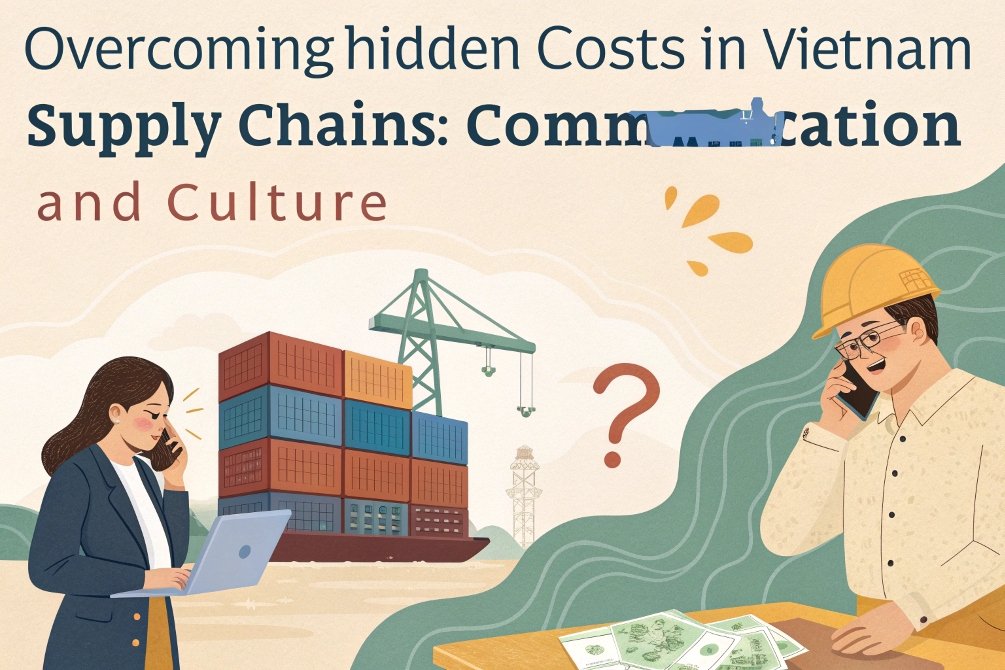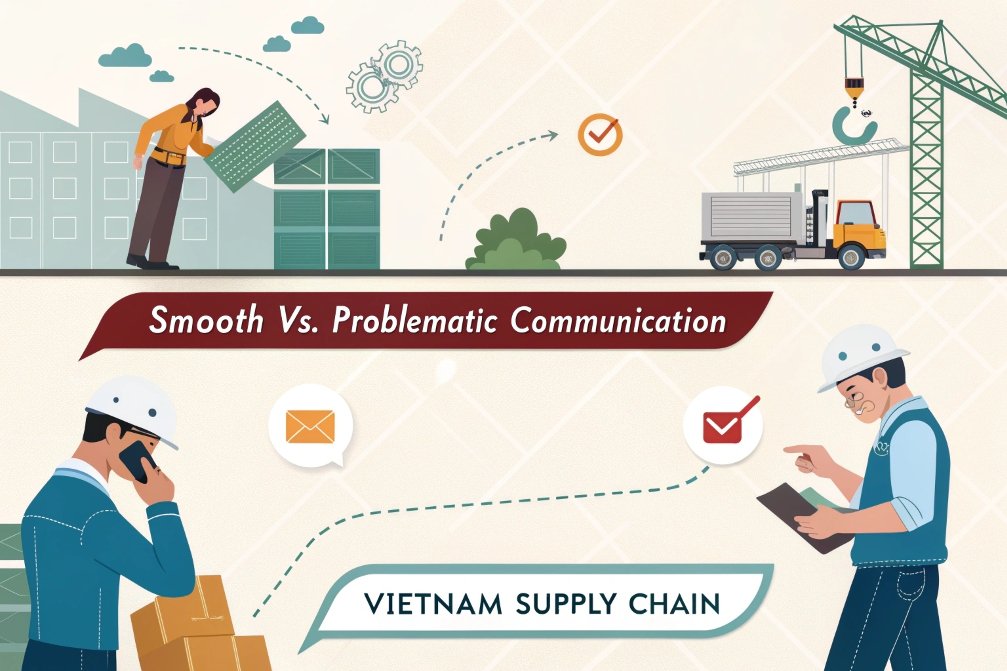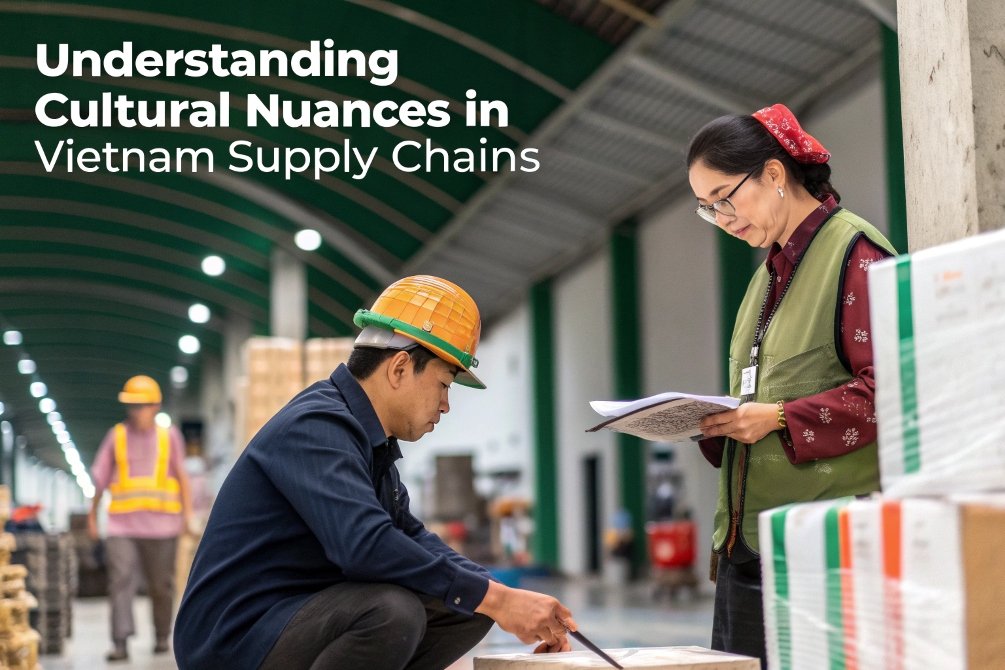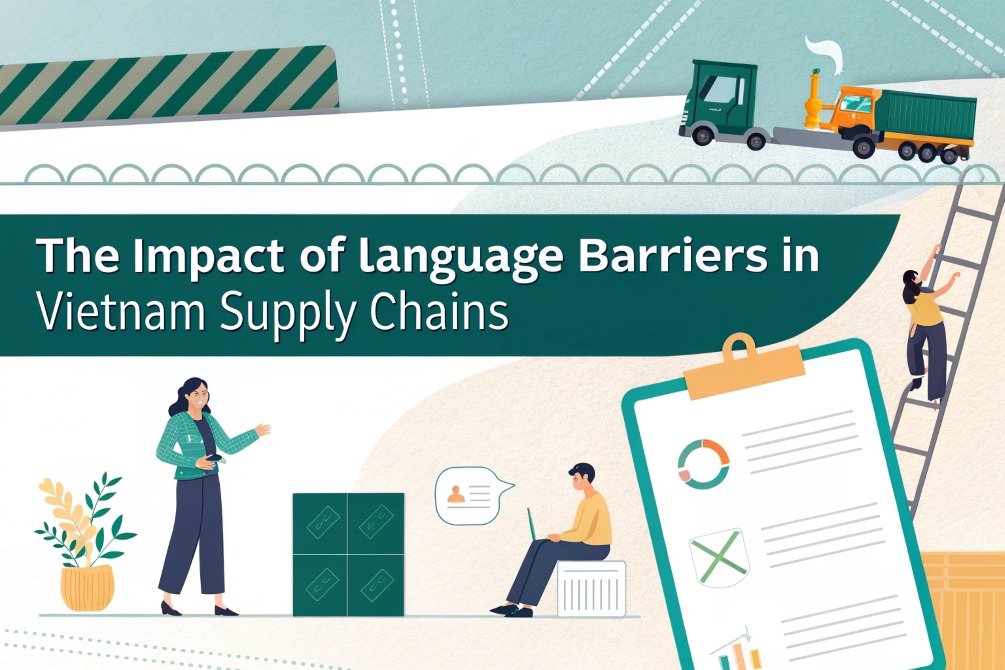
When I’ve helped businesses move their supply chains from China to Vietnam, I’ve seen firsthand how important it is to factor in not just the obvious costs—like labor and raw materials—but also the more hidden costs related to communication, cultural differences, and language barriers. These elements can often be overlooked, but they can cause significant disruptions if not properly managed.
Communication issues, cultural differences, and language barriers can all lead to unexpected costs and delays when shifting a supply chain from China to Vietnam. These "hidden costs" can affect the efficiency, quality, and overall success of the transition if not properly managed.
Let’s explore how these hidden costs play out when moving a supply chain to Vietnam and what businesses should keep in mind.
How Do Communication Issues Impact Supply Chain Shifts from China to Vietnam?
Effective communication is critical to the success of any supply chain, and the shift from China to Vietnam is no exception. However, businesses often overlook how communication dynamics can change between the two countries. While both have a history of working with international partners, the approach to business communication can vary greatly.
In Vietnam, businesses may face communication challenges due to differences in communication style, decision-making processes, and expectations. These differences can result in misunderstandings, delays, and misaligned objectives.

Communication Challenges
| Factor | Impact on Supply Chain Management |
|---|---|
| Indirect Communication | Vietnamese business culture often involves indirect communication, which can lead to misunderstandings. In contrast, Chinese business culture can be more direct, making it easier to identify issues quickly. |
| Time Zone Differences | Communication with Vietnamese suppliers may be impacted by time zone differences, resulting in delayed responses, especially when compared to China’s generally quicker communication with global partners. |
| Expectations and Clarity | Vietnamese partners may assume a higher degree of flexibility and understanding, while businesses from China often operate with more defined and rigid timelines. This can lead to differences in urgency. |
Impact of Communication on Supply Chains
Poor communication can delay product deliveries, compromise quality control, and lead to operational disruptions. For example, misunderstanding a product specification or a change in delivery schedules can cause unexpected delays and additional costs to resolve. Effective communication strategies and expectations management are crucial for smooth transitions.
What Cultural Differences Should Be Factored Into a Supply Chain Transition to Vietnam?
Cultural differences between China and Vietnam can significantly affect the way businesses operate and manage relationships. The Vietnamese work culture, while similar in many ways to China’s, also has some distinct features that can influence everything from negotiation tactics to daily operations.
Understanding cultural nuances is key to building strong relationships with Vietnamese suppliers, managing logistics, and ensuring the success of a supply chain transition.

Key Cultural Differences
| Factor | Impact on Supply Chain Operations |
|---|---|
| Approach to Hierarchy | Vietnamese culture tends to respect authority and hierarchy, though it may not be as strict as in China. This can impact decision-making processes and the speed at which decisions are made. |
| Work-Life Balance | Work-life balance in Vietnam is generally more emphasized than in China, potentially affecting working hours, response times, and commitment levels, especially during public holidays. |
| Negotiation Style | Vietnamese negotiation style is often more relational and less confrontational than China’s, which can result in a more collaborative approach to problem-solving. However, this may also slow down the decision-making process. |
Impact on Supply Chains
Cultural misalignment can lead to frustration, delays, and inefficiencies. For instance, businesses accustomed to fast-paced decision-making may find the more relationship-oriented approach in Vietnam to be a slower process. Understanding how local culture influences business behavior can help businesses avoid unnecessary frustration and align expectations.
Are There Language Barriers That Affect Supply Chain Operations in Vietnam?
Vietnam’s official language is Vietnamese, and while many business professionals speak English, it’s not as universally understood as in China, where English proficiency has been growing for years. This can lead to language barriers that affect everything from order details to logistical communication.
Language barriers in Vietnam can create miscommunications, especially when dealing with technical specifications, shipping schedules, or complex contracts.

Language Challenges
| Language Factor | Impact on Supply Chain Operations |
|---|---|
| Limited English Proficiency1 | English is not as widely spoken in Vietnam as in China, particularly among lower-level workers or small-to-medium-sized suppliers, which can hinder smooth communication. |
| Technical Language Gaps2 | Translating technical terms accurately may be difficult, leading to misunderstandings in product specifications, manufacturing processes, and quality control. |
| Negotiation Language | Vietnamese suppliers may not be comfortable negotiating in English, which could lead to miscommunications or a slower negotiation process. |
Impact of Language Barriers
In complex supply chains, miscommunication can lead to errors, delays, and added costs. A small mistake in interpreting a technical specification or production schedule can cause costly mistakes. To minimize these risks, businesses should consider investing in local language support or using professional translators, especially for technical and legal documents.
Conclusion
Hidden costs like communication issues, cultural differences, and language barriers can significantly impact the success of a supply chain shift from China to Vietnam. These challenges require careful planning and management to avoid delays, misunderstandings, and additional costs. Businesses considering such a move should invest time and resources into understanding these factors, working with experienced partners, and preparing strategies to address potential issues. By proactively managing these hidden costs, companies can smooth the transition and achieve long-term success in their new supply chain environment.

